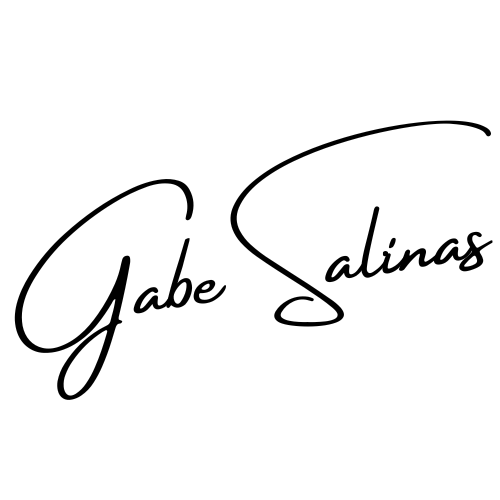How many times have you dropped the ball on something small but critical, like forgetting that one item at the grocery store or missing a detail on a big project? Frustrating, right? Well, you’re in good company! First off, I appreciate you taking the time to join me here today. Your time is valuable, and I promise this read will be worth its weight in post-it notes.
Now, I get it! You might be thinking, “Checklists? Really? Isn’t that a bit over the top?” But hear me out. Checklists aren’t just for obsessive planners or clipboard-wielding inspectors. They’re the secret weapon you didn’t know you needed to boost productivity, avoid those “oops” moments, and keep your sanity intact. Let’s break it all down together!
The Checklist Cringe
I can’t tell you how often I see people physically cringe at the suggestion of using a checklist. The second you bring it up, you can almost hear their thoughts screaming, “I’m smarter than a checklist!” I get it! I used to feel the same way! Back in the day, I thought I had it all under control without a pen and paper telling me what to do. A checklist? That’s for rookies, right?
But here’s the truth bomb: I had to learn the hard way. When a customer calls you back because you missed something and you’re left stammering an “uhhhh, I forgot,” it’s a humbling moment. It’s hard not to play that scenario over in your head and think, “Why didn’t I have a system in place to avoid this?” And listen, most of the time, people don’t forget on purpose. It’s not laziness or intentional carelessness. They usually feel bad! But why even risk it in the first place?
Avoiding the Consequences of Forgetfulness
Here’s some food for thought. Imagine you’re getting prepped for surgery. Would you feel warm and fuzzy inside if your doctor or the surgical prep team said, “Checklist? Nah, we’ve got this. We don’t need a reminder to give you those nice little sleepy-time meds before the procedure. We’ll wing it.”
Uh, yeah, no thanks!
Or picture yourself on a flight, headed to anywhere but here! You’re buckled into your seat, ready for takeoff, and you hear the pilot casually mention over the intercom, “Ladies and gentlemen, this is Captain Confident. I don’t use checklists! I know exactly what I’m doing.”
Comforting, right? Said nobody, ever.
These examples might sound extreme, but they highlight an important point. Forgetting one step can have consequences far beyond inconvenience. It’s about accountability, safety, and yes, saving yourself from those moments where you’re kicking yourself for forgetting something critical.
A Checklist Case Study
Still not convinced? Okay, here’s a little story straight from my own team. At the end of each day, our call center has a simple but essential routine. Whoever is on the late shift (usually wrapping up around 6 p.m.) has a closing checklist. Their job is to clean up the sales team’s work area before heading out, with some other important tasks as well.
Sounds easy, right? Toss the trash, empty the cans, reline them with fresh bags, take the trash to the dumpster, turn off the lights, lock the doors, and secure the gate. Pretty straightforward. But here’s the thing, I can’t even begin to count how many times a part of that process gets skipped when the checklist isn’t followed. Sure, the trash gets taken out. But a fresh liner for the can? Forget about it.
Now imagine walking into the office the next morning with coffee in one hand and a breakfast burrito in the other. You toss your burrito wrapper into the trash, ready to channel your inner Larry Bird, only to hear a deep “clunk” – because there’s no bag. Just an empty plastic can waiting to make a mess of your day.
See what I mean? It’s the little things that add up. A checklist isn’t there to insult your intelligence; it’s there to make life easier. It’s like a safety net for your own brain, giving you space to focus on more important things.
Checklists are for Geniuses, Not Rookies
Here’s the kicker. Using a checklist doesn’t mean you’re less smart. If anything, it shows you’re thinking ahead, planning for success, and valuing consistency. When used right, a checklist can be a lifesaver. It’s like outsourcing memory to a piece of paper so your brain can work on solving the big stuff.
Think about it. Surgeons, pilots, engineers, chefs, and countless other professionals rely on checklists daily. And these aren’t people who lack skill or experience. They’re experts who understand that even the best of us can forget things when we’re juggling multiple tasks.
Your Turn to Tame the Chaos

Hopefully, by now, I’ve convinced you that checklists aren’t just mundane to-do lists; they’re productivity powerhouses. They prevent mistakes, save mental energy, and improve efficiency. Whether you’re managing a team, running a business, or just trying to keep your household running smoothly, checklists can be a game-changer.
Give it a shot. Start simple. Write down the steps for a process you repeat daily but often miss a detail on. Stick to it for a week and see how it changes your workflow.
At the end of the day, it’s not about being perfect. It’s about taking small steps to make life easier. Success is for you and everyone around you. Think of checklists as your personal cheat code for crushing the day. And hey, if it means no more “clang” moments with an empty trash can, I’d say it’s worth it!
Now listen, grab a pen or open up that notes app, and write down the steps for one simple but important task your crew tackles every single day. It doesn’t have to be complicated, just think about the stuff that gets overlooked or could flow smoother. Map it out, step by step, and keep it consistent for a week. I promise, the magic will unfold in front of your eyes. I’ve been there, and trust me, it’s a total game changer! Before you know it, you’ll be crushing it, running smoother than a freshly cleaned window pane! Your life, your team, and maybe even your morning trash can will thank you for it.
-Gabe

